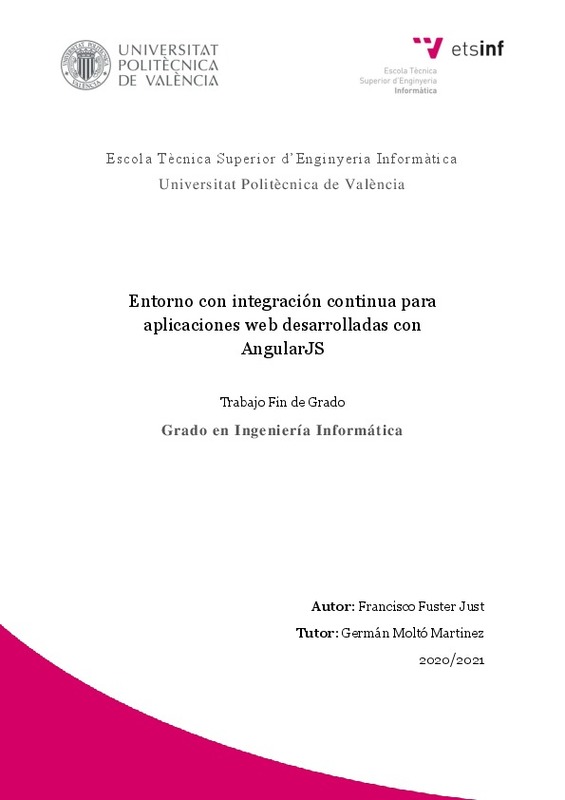- RiuNet repositorio UPV
- :
- Docencia
- :
- Trabajos académicos
- :
- ETSINF - Trabajos académicos
- :
- Ver ítem
JavaScript is disabled for your browser. Some features of this site may not work without it.
Buscar en RiuNet
Listar
Mi cuenta
Estadísticas
Ayuda RiuNet
Admin. UPV
Desde el lunes 3 y hasta el jueves 20 de marzo, RiuNet funcionará en modo de solo lectura a causa de su actualización a una nueva versión.
Entorno con integración continua para aplicaciones web desarrolladascon AngularJS
Mostrar el registro completo del ítem
Fuster Just, F. (2021). Entorno con integración continua para aplicaciones web desarrolladascon AngularJS. Universitat Politècnica de València. http://hdl.handle.net/10251/173273
Por favor, use este identificador para citar o enlazar este ítem: http://hdl.handle.net/10251/173273
Ficheros en el ítem
Metadatos del ítem
| Título: | Entorno con integración continua para aplicaciones web desarrolladascon AngularJS | |||
| Autor: | Fuster Just, Francisco | |||
| Director(es): | Estruch Peiro, Ivan | |||
| Entidad UPV: |
|
|||
| Fecha acto/lectura: |
|
|||
| Resumen: |
[ES] En este trabajo de fin de grado se presenta y analiza un entorno de trabajo con integración continua para el desarrollo de aplicaciones web creadas con AngularJS. En primer lugar he decidido utilizar sistema de control ...[+]
[EN] In this final degree project, a work environment with continuous integration for the development of web applications created with AngularJS is presented and analyzed. First of all, I have decided to use the distributed ...[+]
|
|||
| Palabras clave: |
|
|||
| Derechos de uso: | Reserva de todos los derechos | |||
| Editorial: |
|
|||
| Titulación: |
|
|||
| Tipo: |
|
recommendations
Este ítem aparece en la(s) siguiente(s) colección(ones)
-
ETSINF - Trabajos académicos [5174]
Escola Tècnica Superior d'Enginyeria Informàtica







